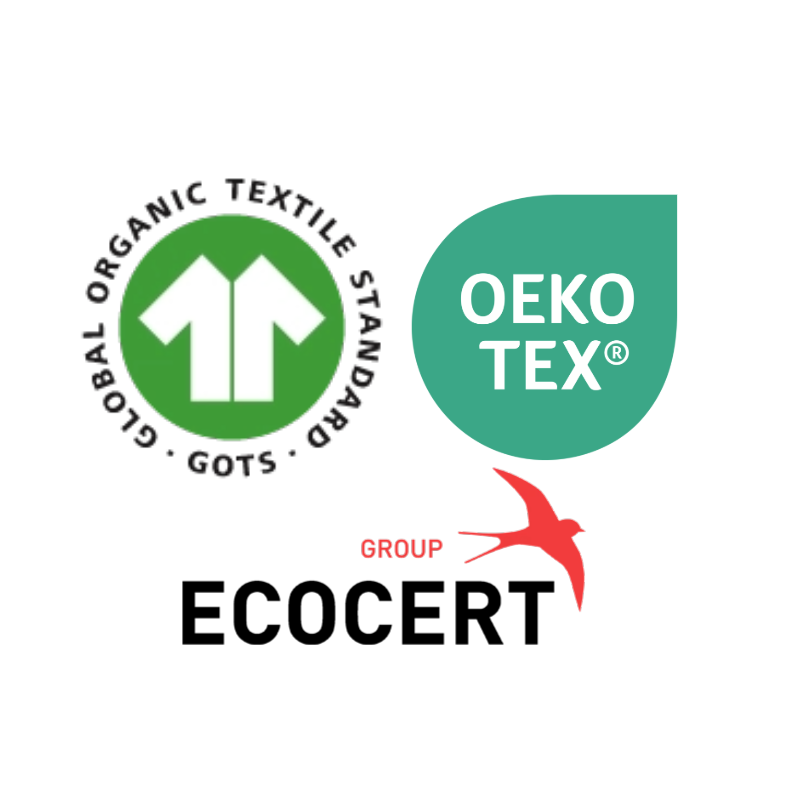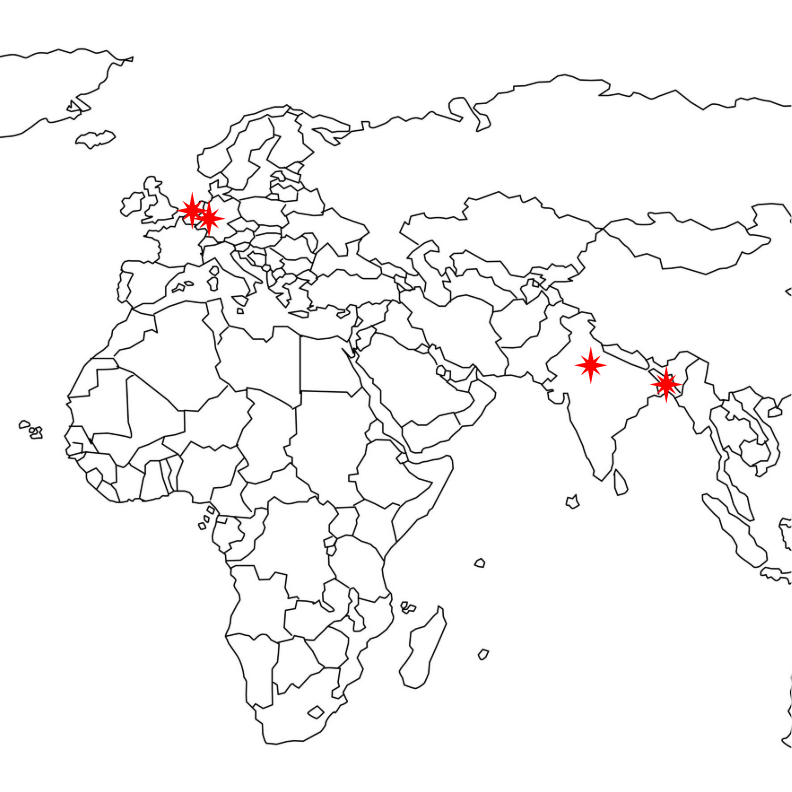Sustainability is a very important aspect in every respect.
The environment as such is very important to us. That's why we use sustainable raw materials and resource-saving processes in the manufacture of our products. The textiles that we mainly use are made from 100% organic cotton that has been grown sustainably. In addition, our main partner Stanley/Stella, from whom we source the majority of our textiles, is a member of the FairWear Foundation, an organization that campaigns for the fair treatment of factory workers in textile production, among other things.
Making sustainability a priority is no longer an option, but a must. We believe that a fairer and more sustainable fashion industry is possible. It is our shared responsibility to continuously improve designs and processes. From the cotton field to our waste management to our collection, our goal is to always act transparently - for us people, the planet and society.
The choice of fibers is crucial to how durable a garment is and how easily it can be recycled. It also determines the quality and ecological footprint of a product.
Our dealer for premium organic products is Stanley/Stella, a Belgian manufacturer that produces particularly high-quality textiles from organic cotton under fair working conditions. Stanley/Stella is a member of the FairWear Foundation. All premium organic products are OEKO-Tex and PETA certified, are produced without genetic engineering and are 100% vegan. Our dealer for product embroidery and printing is Shirtee (production facility in Germany). Shirtee is OEKO-Tex 100 certified and uses inks that do not contain any harmful chemicals. Neo-pigments from Kornit are used, which are free of heavy metals, formaldehydes and alkylphenol ethoxylates (APE). Furthermore, the ink is water-based (biodegradable) and the digital printing machines have a considerably lower water consumption.
Eckpunkte unserer Nachhaltigkeitsstrategie
Als verantwortungsbewusstes Modelabel setzen wir uns für Nachhaltigkeit ein, um den ökologischen Fußabdruck der Modeindustrie zu minimieren und eine faire, ethische Produktion zu gewährleisten. Wir glauben fest daran, dass Mode sowohl stilvoll als auch umweltfreundlich sein kann, ohne Kompromisse bei Qualität oder Design einzugehen. Zudem möchten wir als Vorbild dienen. Sieh dir dazu unsere Gedanken und Tätigkeiten zu folgenden Punkten an:
Bio-Baumwolle
Bestickung
Recyclete Baumwolle
Verkauf auf Anfrage
Reduzierung der Verschwendung
Recycletes Polyester
Recycletes Nylon
Versand und Verpackung
Zertifikate unserer Händler
Transportwege
Als verantwortungsbewusstes Modelabel setzen wir uns für Nachhaltigkeit ein, um den ökologischen Fußabdruck der Modeindustrie zu minimieren und eine faire, ethische Produktion zu gewährleisten. Wir glauben fest daran, dass Mode sowohl stilvoll als auch umweltfreundlich sein kann, ohne Kompromisse bei Qualität oder Design einzugehen. Zudem möchten wir als Vorbild dienen. Sieh dir dazu unsere Gedanken und Tätigkeiten zu folgenden Punkten an:
Sources
We have taken the information directly from our clothing manufacturer Stanley/Stella and our production partner Shirtee. Find out more here:










